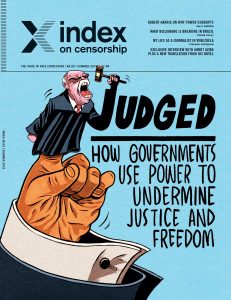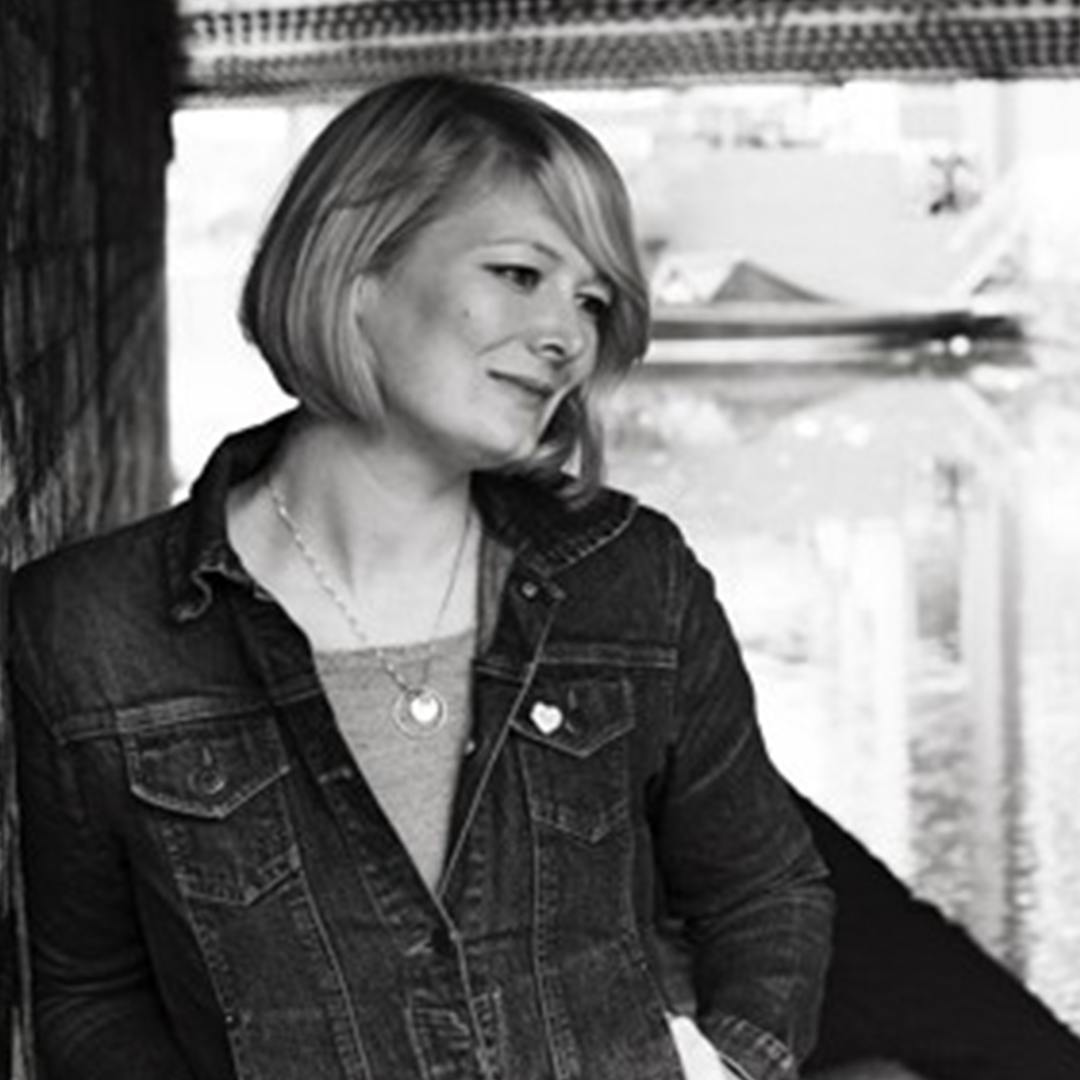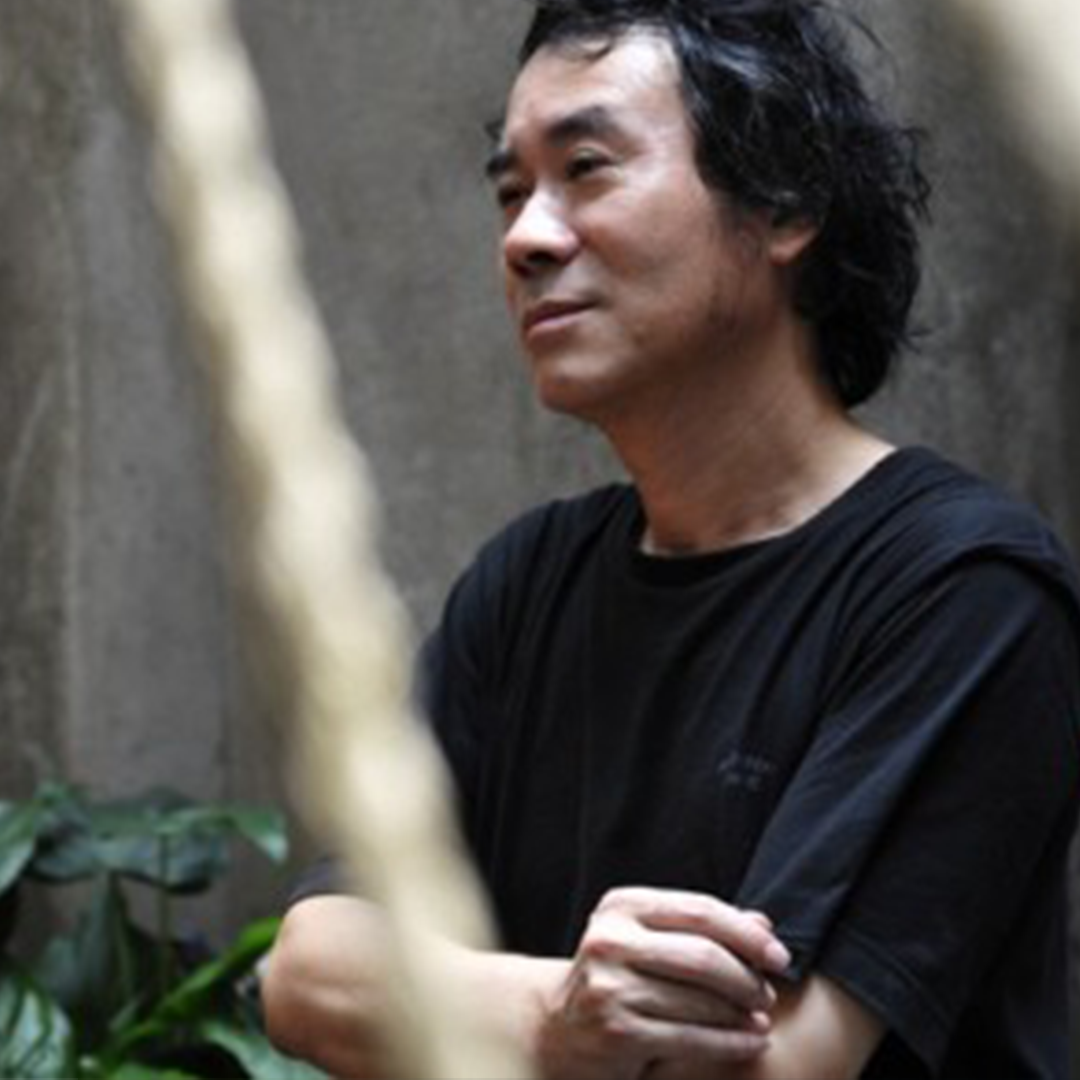12 Sep 2019 | Magazine, Magazine Editions, Volume 48.03 Autumn 2019
Novelist
Elif Shafak is an award-winning Turkish novelist and advocate for free expression. Her latest novel 10 Minutes 38 Seconds in This Strange World has been long-listed for the Booker Prize.
Novelist
The award-winning novelist Kerry Hudson’s memoir Lowborn captured the imagination of the British public this year because of her vivid description of her dysfunctional family and growing up in poverty in the UK.
Writer
Chen Xiwo is a censored Chinese author, most famous for his collection of stories The Book of Sins which was published in English in 2014. His controversial novella I Love My Mum remains banned in China
10 Sep 2019 | Mexico, News, North Korea, South Korea, United Kingdom, United States, Volume 48.03 Autumn 2019
In the Index on Censorship autumn 2019 podcast, we focus on how travel restrictions at borders are limiting the flow of free thought and ideas. Lewis Jennings and Sally Gimson discuss the latest issue of the magazine and reveal what to expect. Guests include trans woman and activist Peppermint, runner-up of RuPaul’s Drag Race season nine, who opens up about a transphobic experience in a Russian airport; San Diego photojournalist Ariana Drehsler talks about her detainment at a Mexican border and how this compares to a similar situation that happened in Egypt; and Steven Borowiec, a regular contributor to the magazine based in South Korea, discusses the laws surrounding the toughest border in the world.
Print copies of the magazine are available on Amazon, or you can take out a digital subscription via Exact Editions. Copies are also available at the BFI, the Serpetine Gallery and MagCulture (all London), News from Nowhere (Liverpool). Red Lion Books (Colchester) and Home (Manchester). Each magazine sale helps Index on Censorship continue its fight for free expression worldwide.
The autumn 2019 podcast can also be found on iTunes.
16 Jul 2019 | History, Magazine, News
[vc_row][vc_column][vc_single_image image=”107971″ img_size=”full” add_caption=”yes”][vc_column_text]Just before he was about to return to Argentina for the first time since his escape from the military junta in 1976, Andrew gave me a bulky package, asking that I take care of it in his absence. It was 1983/84 and he did well to be cautious; he was badly beaten up as he prepared to testify to the ‘disappearances’ under the military.
On his return he opened the parcel – which I’d kept under my bed untouched – and showed me the documents inside. Long lists of names, dates, details he’d recorded between 1973 and his departure three years later. These were the ‘disappeared’, the only record at the time, meticulously recorded by Andrew and the reason for the junta’s attempt on his life shortly before his departure.
I met Andrew around 1978, not long after he arrived in the UK with his family. He had his head down at the subs desk at the Guardian, but when we all went for a drink after a night shift work, I decided there were better ways for him to spend his time.
We had just initiated a new monthly section of the Guardian, ‘Third World Review’, and he seemed the right man to tell the story of Argentina and Latin America in a supplement that boasted ‘This is the story of the Third World – as it was then known – by its own journalists and writers in their own words’. In 1980, South magazine took the project further and Andrew eventually became my editor there.
In 1989, as South entered its last days, I received an invitation to lunch from the then head of Index, Philip Spender. He’d had an application from someone for the newly-vacant editorship of the magazine. What could I tell him of this man Andrew Graham-Yooll? From only the second issue of Index, Andrew had got in touch and written for the magazine. He was instrumental in widening the range of the magazine well beyond its founding brief of the censorship-ridden Communist world; freedom of expression he said with passion, was as much a human right as one’s daily bread. Index seemed like the perfect job for this happy but somehow melancholy Argentine journalist: I had no hesitation in recommending him.
Before long, he had fished me out from under the post-South dole net and I was doing a day a week editing Index and drinking with Andrew. I introduced him to the wilds of Wiltshire, introduced him to a world and people very different from the media mafia and was, in turn, educated in a world I did not know.
I was devastated when he decided to return to Argentina as editor-in-chief of the Buenos Aries Herald in 1994. Last ace in the hole? I was his successor as editor of Index.
Andrew’s combination of courage – of which he never spoke – humour and inner sorrow were the basis of a deep and lasting friendship that survived his return. He was due to visit me the week he died…
Judith Vidal-Hall was editor of Index on Censorship magazine from 1993 to 2007.
[/vc_column_text][vc_video link=”https://youtu.be/jAqym-LwdNE”][vc_basic_grid post_type=”post” max_items=”4″ element_width=”6″ grid_id=”vc_gid:1563284482277-2e0bec30-f258-8″ taxonomies=”5999″][/vc_column][/vc_row]
15 Jul 2019 | Magazine, News, Volume 48.02 Summer 2019
[vc_row][vc_column][vc_custom_heading text=”Index editor Rachael Jolley argues in the summer 2019 issue of Index on Censorship magazine that it is vital to defend the distance between a nation’s leaders and its judges and lawyers, but this gap being narrowed around the world” google_fonts=”font_family:Libre%20Baskerville%3Aregular%2Citalic%2C700|font_style:400%20italic%3A400%3Aitalic”][vc_column_text]
 It all started with a conversation I had with a couple of journalists working in tough countries. We were talking about what kind of protection they still had, despite laws that could be used to crack down on their kind of journalism – journalism that is critical of governments.
It all started with a conversation I had with a couple of journalists working in tough countries. We were talking about what kind of protection they still had, despite laws that could be used to crack down on their kind of journalism – journalism that is critical of governments.
They said: “When the independence of the justice system is gone then that is it. It’s all over.”
And they felt that while there were still lawyers prepared to stand with them to defend cases, and judges who were not in the pay of – or bowed by – government pressure, there was still hope. Belief in the rule of law, and its wire-like strength, really mattered.
These are people who keep on writing tough stories that could get them in trouble with the people in power when all around them are telling them it might be safer if they were to shut up.
This sliver of optimism means a great deal to journalists, activists, opposition politicians and artists who work in countries where the climate is very strongly in favour of silence. It means they feel like someone else is still there for them.
I started talking to journalists, writers and activists in other places around the world, and I realised that although many of them hadn’t articulated this thought, when I mentioned it they said: “Yes, yes, that’s right. That makes a real difference to us.”
So why – and how – do we defend the system of legal independence and make more people aware of its value? It’s not something you hear being discussed in the local bar or café, after all.
Right now, we need to make a wider public argument about why we all need to stand up for the right to an independent justice system.
[/vc_column_text][vc_row_inner][vc_column_inner width=”1/4″][vc_icon icon_fontawesome=”fa fa-quote-left” color=”custom” size=”xl” align=”right” custom_color=”#dd3333″][/vc_column_inner][vc_column_inner width=”3/4″][vc_custom_heading text=”On an ordinary day, most of us are not in court or fighting a legal action, so it is only when we do, or we know someone who is, that we might realise that something important has been eroded” font_container=”tag:h3|text_align:left” google_fonts=”font_family:Libre%20Baskerville%3Aregular%2Citalic%2C700|font_style:400%20italic%3A400%3Aitalic”][/vc_column_inner][/vc_row_inner][vc_column_text]
We need to do it because it is at the heart of any free country, protecting our freedom to speak, think, debate, paint, draw and put on plays that produce unexpected and challenging thoughts. The wider public is not thinking “hey, yes, I worry that the courts are run down, and that criminal lawyers are in short supply”, or “If I took a case to trial and won my case I can no longer claim my lawyer’s fees back from the court”. On an ordinary day, most of us are not in court or fighting a legal action, so it is only when we are, or when we know someone who is, that we might realise that something important has been eroded.
Our rights are slowly, piece by piece, being undermined when our ability to access courts is severely limited, when judges feel too close to presidents or prime ministers, and when lawyers get locked up for taking a case that a national government would rather was not heard.
All those things are happening in parts of the world right now.
In China, hundreds of lawyers are in prison; in England and Wales since 2014 it has become more risky financially for most ordinary people to take a case to court as those who win a case no longer have their court fees paid automatically; and in Brazil the new president, Jair Bolsonaro, has just appointed a judge who was very much part of his election campaign to a newly invented super-ministerial role.
Helpfully, there are some factors that are deeply embedded in many countries’ legal histories and cultures that make it more difficult for authoritarian leaders to close the necessary space between the government and the justice system.
Many people who go into law, particularly human-rights law, do so with a vision of helping those who are fighting the system and have few powerful friends. Others hate being pressurised. And in many countries there are elements of the legal system that give sustenance to those who defend the independence of the judiciary as a vital principle.
Nelson Mandela’s lawyer, Sir Sydney Kentridge QC, has made the point that judges recruited from an independent bar would never entirely lose their independence, even when the system pressurised them to do so.
He pointed out that South African lawyers who had defended black men accused of murder in front of all-white juries during the apartheid period were not easily going to lose their commitment to stand up against the powerful.
Sir Sydney did, however, also argue that “in the absence of an entrenched bill of rights, the judiciary is a poor bulwark against a determined and immoderate government” in a lecture printed in Free Country, a book of his speeches.
So it turned out that this was the right time to think about a special report on this theme of the value of independent justice, because in lots of countries this independence is under bombardment.
It’s not that judges and lawyers haven’t always come under pressure. In his book The Rule of Law, Lord Bingham, a former lord chief justice of England and Wales, mentions a relevant historical example. When Earl Warren, the US chief justice, was sitting on the now famous Brown v Board of Education case in 1954, he was invited to dinner with President Dwight Eisenhower. Eisenhower sat next to him at dinner and the lawyer for the segregationists sat on his other side. According to Warren, the president went to great lengths to promote the case for the segregationists, and to say what a great man their lawyer was. Despite this, Warren went on to give the important judgement in favour of Brown that meant that racial segregation in public schools became illegal.
Those in power have always tried to influence judges to lean the way they would prefer, but they should not have weapons to punish those who don’t do so.
In China, hundreds of lawyers who stood up to defend human-rights cases have been charged with the crime of “subverting state power” and imprisoned. When the wife of one of the lawyers calls on others to support her husband, her cries go largely unheard because people are worried about the consequences.
This, as Karoline Kan writes on p23, is a country where the Chinese Communist Party has control of the executive, judicial and legislative branches of government, and where calls for political reform, or separation of powers, can be seen as threats to stability.
As we go to press we are close to the 30th anniversary of the Tiananmen Square killings, when thousands of protesters all over China, from all kinds of backgrounds, had felt passionately that their country was ready for change – for democracy, transparency and separation of powers.
Unfortunately, that tide was turned back by China’s government in 1989, and today we are, once more, seeing China’s government tightening restrictions even further against those who dare to criticise them.
Last year, the Hungarian parliament passed a law allowing the creation of administrative courts to take cases involving taxation and election out of the main legal system (see p34). Critics saw this as eroding the gap between the executive and the justice system. But then, at the end of May 2019, there was a U-turn, and it was announced that the courts were no longer going ahead. It is believed that Fidesz, the governing party in Hungary, was under pressure from its grouping in the European Parliament, the European People’s Party.
If it were kicked out of the EPP, Hungary would have in all likelihood lost significant funding, and it is believed there was also pressure from the European Parliament to protect the rule of law in its member states.
But while this was seen as a victory by some, others warned things could always reverse quickly.
Overall the world is fortunate to have many lawyers who feel strongly about freedom of expression, and the independence of any justice system.
Barrister Jonathan Price, of Doughty Street Chambers, in London, is part of the team advising the family of murdered journalist Daphne Caruana Galizia over a case against the Maltese government for its failure to hold an independent inquiry into her death.
He explained why the work of his colleagues was particularly important, saying: “The law can be complex and expensive, and unfortunately the laws of defamation, privacy and data protection have become so complex that they are more or less inoperable in the hands of the untrained.”
Specialist lawyers who were willing to take on cases had become a necessary part of the rule of law, he said – a view shared by human-rights barrister David Mitchell, of Ely Place Chambers, in London.
“The rule of law levels the playing field between the powerful and [the] powerless,” he said. “It’s important that lawyers work to preserve this level.”
Finally, another thought from Sir Sydney that is pertinent to how the journalists I mentioned at the beginning of this article keep going against the odds: “It is not necessary to hope in order to work, and it is not necessary to succeed in order to hope in order to work, and it is not necessary to succeed in order to persevere.”
But, of course, it helps if you can do all three.
[/vc_column_text][/vc_column][/vc_row][vc_row][vc_column][vc_column_text]
Rachael Jolley is editor of Index on Censorship. She tweets @londoninsider. This article is part of the latest edition of Index on Censorship magazine, with its special report on local news
Index on Censorship’s spring 2019 issue is entitled Is this all the local news? What happens if local journalism no longer holds power to account?
Look out for the new edition in bookshops, and don’t miss our Index on Censorship podcast, with special guests, on Soundcloud.
[/vc_column_text][/vc_column][/vc_row][vc_row][vc_column width=”1/3″][vc_custom_heading text=”How governments use power to undermine justice and freedom” font_container=”tag:h3|text_align:left” link=”url:https%3A%2F%2Fwww.indexoncensorship.org%2F2019%2F06%2Fmagazine-judged-how-governments-use-power-to-undermine-justice-and-freedom%2F|||”][vc_column_text]The summer 2019 Index on Censorship magazine looks at the narrowing gap between a nation’s leader and its judges and lawyers.[/vc_column_text][/vc_column][vc_column width=”1/3″][vc_row_inner][vc_column_inner][vc_single_image image=”107686″ img_size=”full” onclick=”custom_link” link=”https://www.indexoncensorship.org/2019/06/magazine-judged-how-governments-use-power-to-undermine-justice-and-freedom/”][/vc_column_inner][/vc_row_inner][/vc_column][vc_column width=”1/3″][vc_custom_heading text=”Subscribe” font_container=”tag:h3|text_align:left”][vc_row_inner][vc_column_inner][vc_column_text]In print, online. In your mailbox, on your iPad.
Subscription options from £18 or just £1.49 in the App Store for a digital issue.
Every subscriber helps support Index on Censorship’s projects around the world.
 SUBSCRIBE NOW[/vc_column_text][/vc_column_inner][/vc_row_inner][/vc_column][/vc_row]
SUBSCRIBE NOW[/vc_column_text][/vc_column_inner][/vc_row_inner][/vc_column][/vc_row]






 It all started with a conversation I had with a couple of journalists working in tough countries. We were talking about what kind of protection they still had, despite laws that could be used to crack down on their kind of journalism – journalism that is critical of governments.
It all started with a conversation I had with a couple of journalists working in tough countries. We were talking about what kind of protection they still had, despite laws that could be used to crack down on their kind of journalism – journalism that is critical of governments. ![]() SUBSCRIBE NOW[/vc_column_text][/vc_column_inner][/vc_row_inner][/vc_column][/vc_row]
SUBSCRIBE NOW[/vc_column_text][/vc_column_inner][/vc_row_inner][/vc_column][/vc_row]